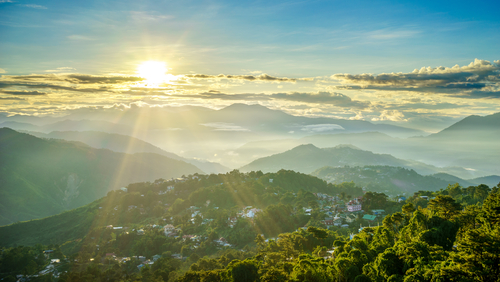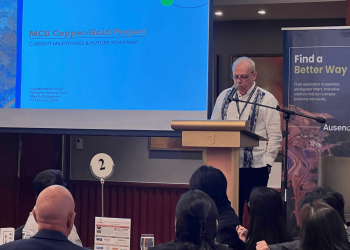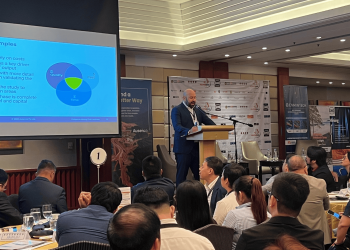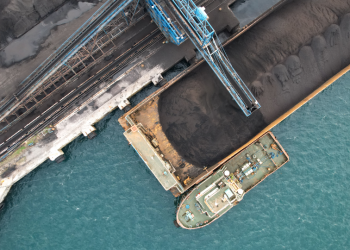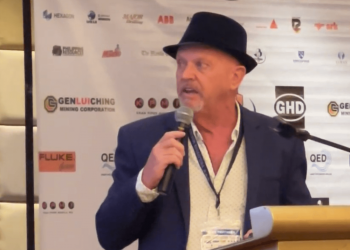The Philippines is one of the highly mineralized countries in the world with around nine million hectares of land considered to have high mineral potential. According to a 2013 report by the Senate Economic Planning Office, the country has enough resources to supply the world’s growing demand for precious minerals and metals.
Despite the potential for economic gains, the mining industry is often dubbed a “dirty” industry with its reputation often rooted in the practice’s reported environment effects namely air and pollution, damage to lands, loss of biodiversity, and long-term landscape recovery.
The Philippines has experienced its own share of environmental disasters caused by mining, such as the 1006 tailings leak at Canadia-owned Marcopper Mining Corp’s copper mine in Marinduque that contaminated rivers. One of the most recent and notable incidents related to mining activities was on September 27 last year when a landslide hit an illegal mining site in Itogon, Benguet that killed 34 people.
When Regina Lopez was appointed secretary of the Department of Environment and Natural Resources (DENR), she vowed that a thorough review will be conducted to see if the country is safe from mining. During her stint, she issued a ban on open pit mining and ordered closures of some mining operations.
President Rodrigo Duterte also issued a statement, saying the DENR must take a serious look on destructive mining practices.
“Mining must stop. And if I cannot stop it during my time as President, nobody can. Because it’s big business and the pressure is just too great,” he said in a BusinessMirror report.
THE GOOD IN THE “BAD”
The Philippine mining industry continues to fight for both the government’s and the public’s approval.
Lawmakers are pushing for plans to further tax the mining industry in addition to the doubling of the excise tax. The industry, for its part, expressed willingness to accept and pay the additional taxes while waiting for the government’s decision on its request to reverse the closure orders released by former DENR secretary Gina Lopez.
World renowned economist Nouriel Roubini claimed that the mining sector will have a significant role in the country’s economic boost. However, structural reforms need to take place.
“It is important to make sure that the effects of mining on the environment are taken into account. It is important that these regulations are fixed to incentivize investors,” Roubini was quoted in a Rappler report.
“Three pending mining projects can bring the industry’s exports to over nine percent of total exports and increase the industry’s contribution to about 1.4 percent of the country’s GDP (gross domestic product),” said Gerard Brimo, Chairman of the Chamber of Mines of the Philippines (COMP).
The Philippines is the fifth most mineral-rich country in the world , with an estimated $1.4 trillion in mineral reserves.
Mining operations can also bring employment opportunities and developments to the most remote areas in the country, according to officials of Nickel Asia Corp. (NAC)
In an article published on Medium, the mining industry overall accounts for 0.6 percent of total employment since 2016. The Mines and Geosciences Bureau (MGB) added that there are 236,000 workers in the industry as of 2016.
Officials from NAC recounted how mining brought improvement in their host community in Palawan.
“Slowly, the community was transformed,” vice president for corporate communications of Nickel Asia Corp. JB Baylon was quoted in a Philippine Daily Inquirer article.
Sturdy homes were provided, including a free hospital for employees as well as a school and sports complex.
“Contrary to what people say that mining brings poverty, in this area mining brought development,” Baylon noted.
RESPONSIBLE MINING
Illegal small-scale mining continues to be prevalent in the country despite the government’s efforts to eradicate the activity.
More than 60 percent of gold mined in the Philippines can be accounted from illegal small-scale mining, according to MGB’s data.
Earlier this year, the local mining industry calls for a thorough investigation of small-scale mining activities after five miners died, while two others were missing due to a landslide that buried a bunkhouse in a mining area in Mt. Manhupaw.
“Incidents like this can be avoided if small-scale mining activities, including their safety practices and environmental performance, are closely monitored under the Minahang Bayan setup recognized by the government,” COMP was quoted in a Philippine Star report.
In September, DENR Secretary Roy Cimatu ordered the temporary suspension of all small-scale mining activities, including those with permits for their operations.
“To prevent further danger to the lives of small scale miners, I officially order cease and desist order of all illegal small scale mining operations in the whole of the Cordillera Administrative Region,” Cimatu was quoted in a Philippine Information Agency.
Closing all mining sites might not be a viable option as the products of mining are part of our daily lives. However, accidents and environmental impacts brought by illegal mining activities cannot be ignored.
The government has implemented legal measures to help protect the rights of legal mining operators while protecting the environment at the same time. Some of these legal measures are:Republic Act No. 8371 or the Indigenous Peoples’ Rights Act; House Bill No. 00113 also known as An Act Prescribing Standards for Responsible Mining; House Bill No. 01455 or An Act Creating Congressional Oversight Committee on Mining; House Bill No. 01470, also known as An Act Regulating the Practice of Mining Engineering in the Philippines; and Senate Bill No. 313 or An Act Establishing the Fiscal Regime for the Mining Industry.
President Duterte has expressed his commitment to abolish destructive mining, which the Chamber of Mines of the Philippines (COMP) fully supported.
“This has always been COMP’s position, as we continue to find ways to strengthen our programs in social development and management to include indigenous peoples [IPs] and environmental enhancement,” the chamber said in a statement.
“We commit to work hand in hand with the incoming administration to help address concerns in our industry so that we may promote true inclusive growth around the country,” it added.
Although responsible mining might be the solution to all these issues, anti mining groups claimed that this is not the real solution.
“First, there is no legal definition that can set parameters on how responsible mining can be done, much less how this can be measured whether in terms of compliance or best practice,” Alyansa Tigil Mina (ATM) National Coordinator Jaybee Garganera was quoted in a BusinessMirror article.
He added that responsible mining can only be done if it’s in line with other concerned laws such as the Indigenous Peoples’ Rights Act (IPRA) Local Government Code, National Integrated Protected Areas System Act and the Afma.
Experts said that better policies should be implemented to help the mining sector achieve its potential.
“We need to awaken the full potential of the mining industry and it means shifting the government regulatory approach from a restrictive developmental policy regime… ” president of Stratbase Albert del Rosario Institute Victor Andres C. Manhit was quoted in a BusinessWorld article.
“Balanced environmental governance is the key to realizing and unlocking the transformative potential of resource management and sustainable mining activities,” he added.



